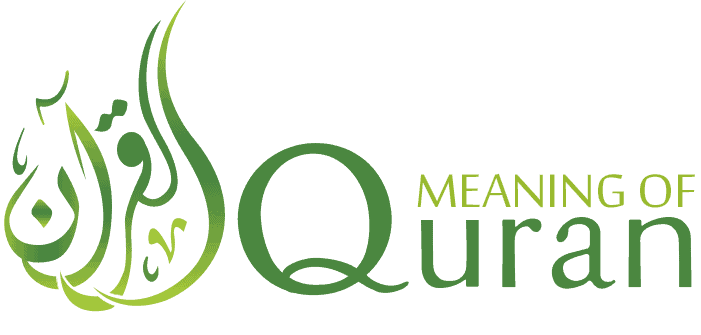Al-‘Adiyat | The Courser
With the name of Allah, the All-Merciful, the Very-Merciful.
[100:1] (I swear) by those (horses) that run snorting,
[100:2] then those that create sparks by striking (their hoofs) on the stones,
[100:3] then those that invade at morning,
[100:4] then raise, at the same time, a trail of dust,
[100:5] then enter, at the same time, into the centre of the (opposing) host,
[100:6] man is, indeed, very ungrateful to his Lord,
[100:7] and he himself is a witness to that fact,
[100:8] and in his love for wealth, he is very intense.
[100:9] Does he not then know (what will happen) when all that is contained in the graves will be overturned,
[100:10] and all that is contained in the hearts will be exposed.
[100:11] Surely your Lord, that day, is fully aware of them.
With the name of Allah, the All-Merciful, the Very-Merciful.
[100:1] (I swear) by those (horses) that run snorting,
[100:2] then those that create sparks by striking (their hoofs) on the stones,
[100:3] then those that invade at morning,
[100:4] then raise, at the same time, a trail of dust,
[100:5] then enter, at the same time, into the centre of the (opposing) host,
[100:6] man is, indeed, very ungrateful to his Lord,
[100:7] and he himself is a witness to that fact,
[100:8] and in his love for wealth, he is very intense.
[100:9] Does he not then know (what will happen) when all that is contained in the graves will be overturned,
[100:10] and all that is contained in the hearts will be exposed.
[100:11] Surely your Lord, that day, is fully aware of them.
Tafsir
Overview of Surah Al-‘Adiyat
- Title and Position: Surah Al-‘Adiyat is the 100th chapter of the Quran. The title “Al-‘Adiyat” translates to “The Chargers,” referring to the war horses described at the beginning of the surah, symbolizing fierceness and the intensity of human conflict.
- Verses and Structure: This surah contains 11 verses. It is known for its vivid depiction of horses in battle, using this imagery to delve into deeper themes of human ingratitude and the heedlessness of material pursuits.
- Themes and Messages: Major themes include the valor and zeal of horses in battle, serving as a metaphor for human endeavors; the ingratitude of man towards God’s blessings; and the certainty of resurrection and judgment.
- Significance in Islamic Thought: Surah Al-‘Adiyat is significant for its powerful imagery and its moral and spiritual lessons, emphasizing the transitory nature of worldly life and the ultimate reality of the afterlife.
Detailed Explanation
- The War Horses: The surah opens with a striking description of charging war horses, capturing their breathlessness, hoofbeats, and their role in battle, drawing a parallel to human zeal and often destructive pursuits.
- Human Ingratitude: It highlights the ingratitude of humans towards God’s bounties, pointing out the tendency to overlook divine favors and becoming engrossed in worldly gain.
- Consequences of Actions: The surah warns that human actions, particularly their materialistic pursuits and ingratitude, will be scrutinized, and they will be held accountable on the Day of Judgment.
- Certainty of Judgment: It asserts the inevitability of resurrection and judgment, reminding humans of the transient nature of life and the enduring consequences of their deeds.
- Call to Reflection: Through the metaphor of the war horses, the surah invites reflection on one’s life priorities, urging a shift from ingratitude and materialism to gratitude, ethical conduct, and consciousness of the hereafter.
FAQs
- Why is Surah Al-‘Adiyat named “The Chargers”?
- The surah is named “Al-‘Adiyat” due to its vivid depiction of charging horses, using their intensity and fervor as a metaphor for human actions and attitudes, particularly focusing on the themes of struggle and conflict.
- What does the surah imply about human nature?
- It suggests that humans have a tendency towards ingratitude and are often preoccupied with the pursuit of worldly gains, losing sight of spiritual values and divine accountability.
- How does the surah connect the imagery of horses to the Day of Judgment?
- The initial imagery of horses in battle serves to capture the reader’s attention, setting the stage for a broader reflection on life’s purpose and the ultimate reality of resurrection and divine judgment.
- What lesson can be derived from Surah Al-‘Adiyat?
- The lesson is to recognize and be grateful for God’s blessings, to prioritize spiritual and ethical values over materialistic pursuits, and to remain mindful of the inevitable judgment and the eternal consequences of one’s actions.
- The surah is named “Al-‘Adiyat” due to its vivid depiction of charging horses, using their intensity and fervor as a metaphor for human actions and attitudes, particularly focusing on the themes of struggle and conflict.
- It suggests that humans have a tendency towards ingratitude and are often preoccupied with the pursuit of worldly gains, losing sight of spiritual values and divine accountability.
- The initial imagery of horses in battle serves to capture the reader’s attention, setting the stage for a broader reflection on life’s purpose and the ultimate reality of resurrection and divine judgment.
- The lesson is to recognize and be grateful for God’s blessings, to prioritize spiritual and ethical values over materialistic pursuits, and to remain mindful of the inevitable judgment and the eternal consequences of one’s actions.
Read more
